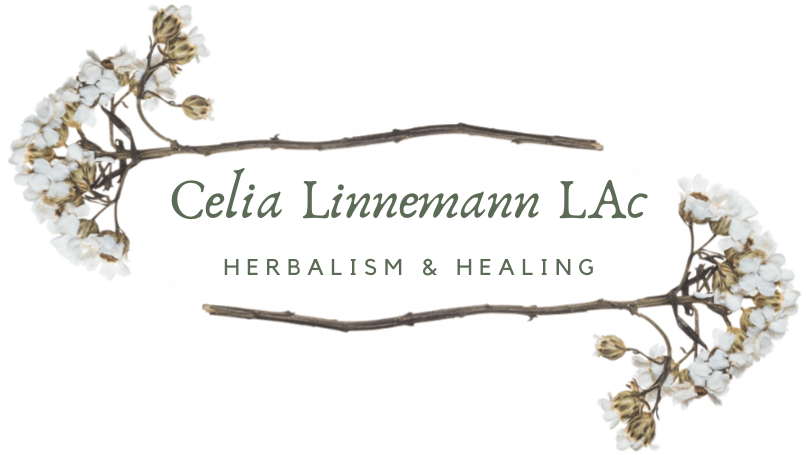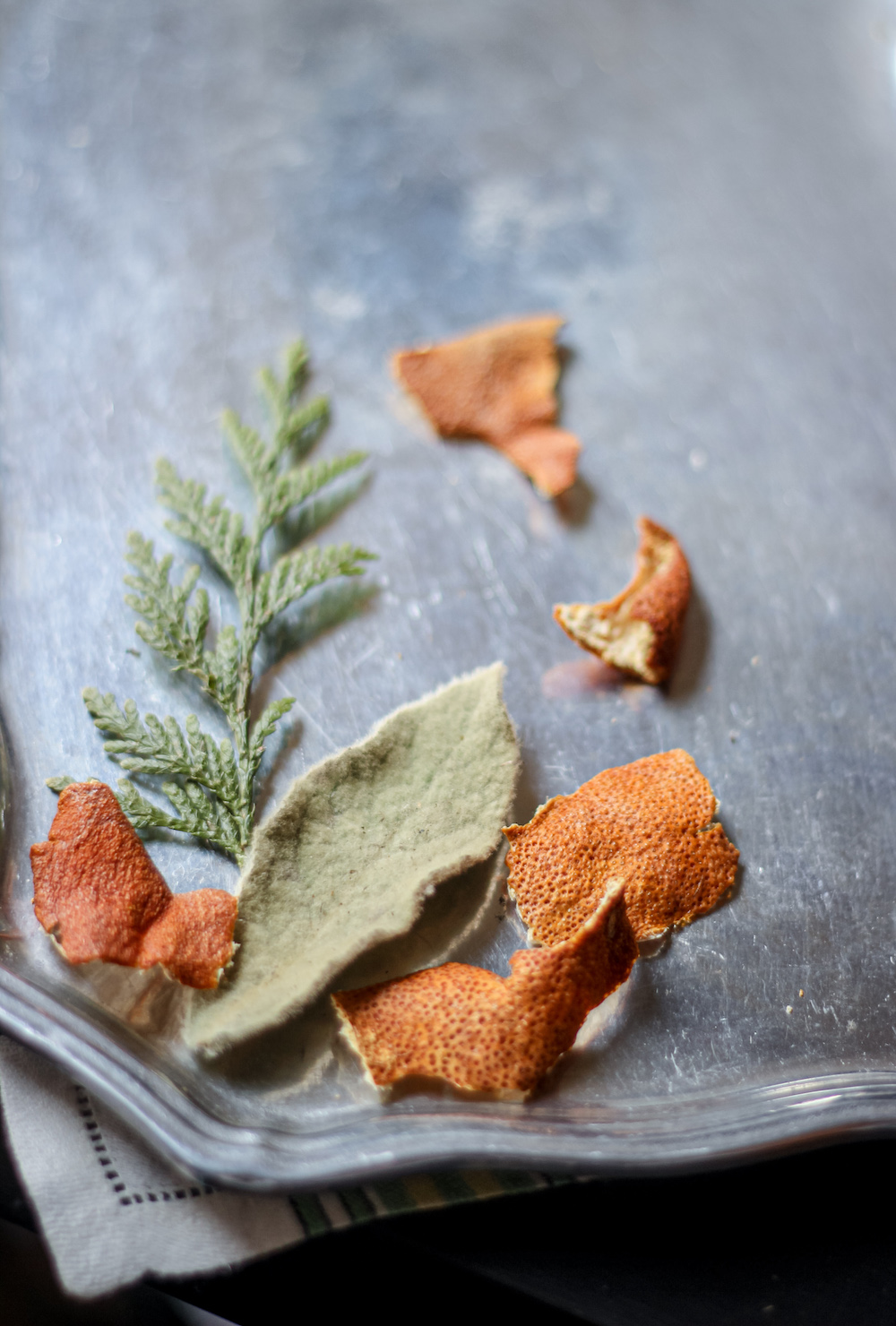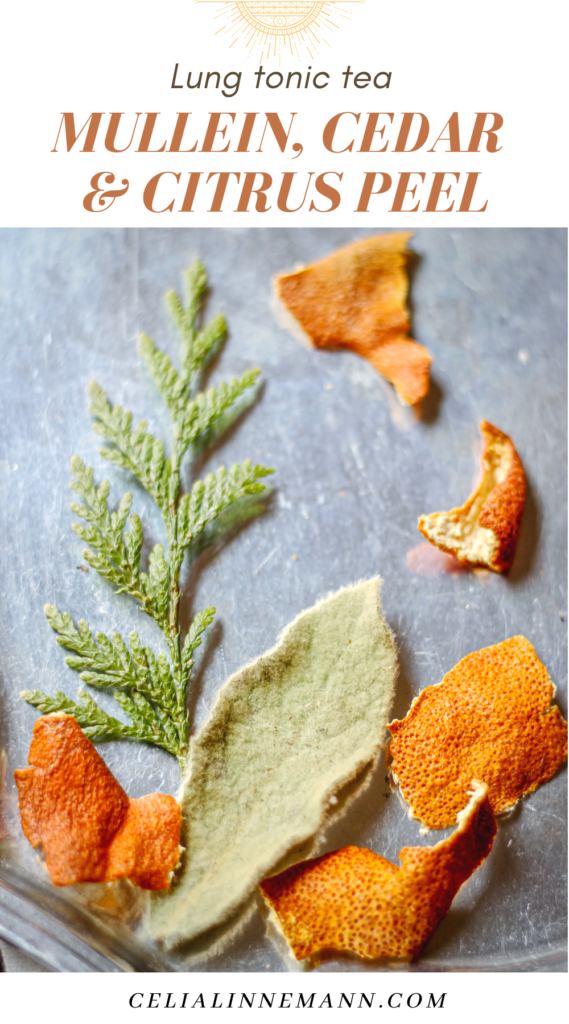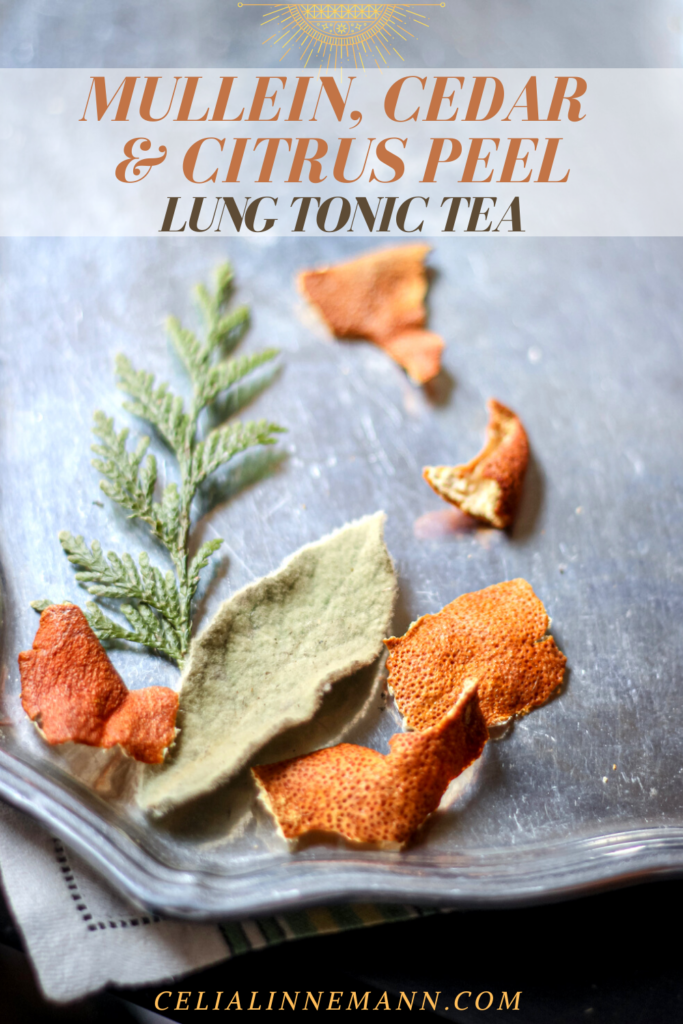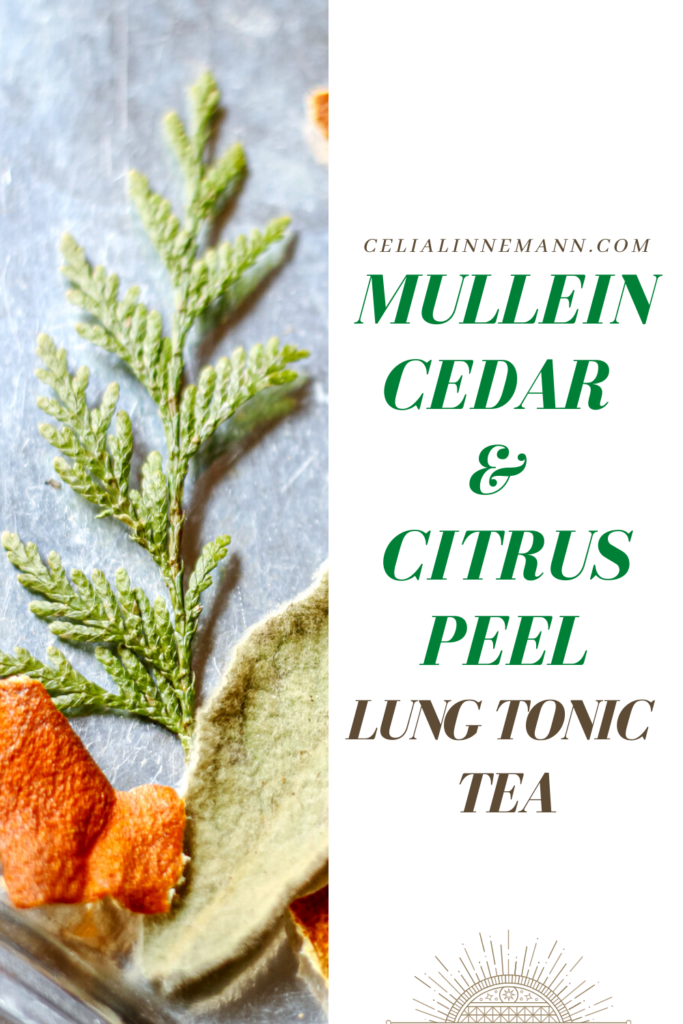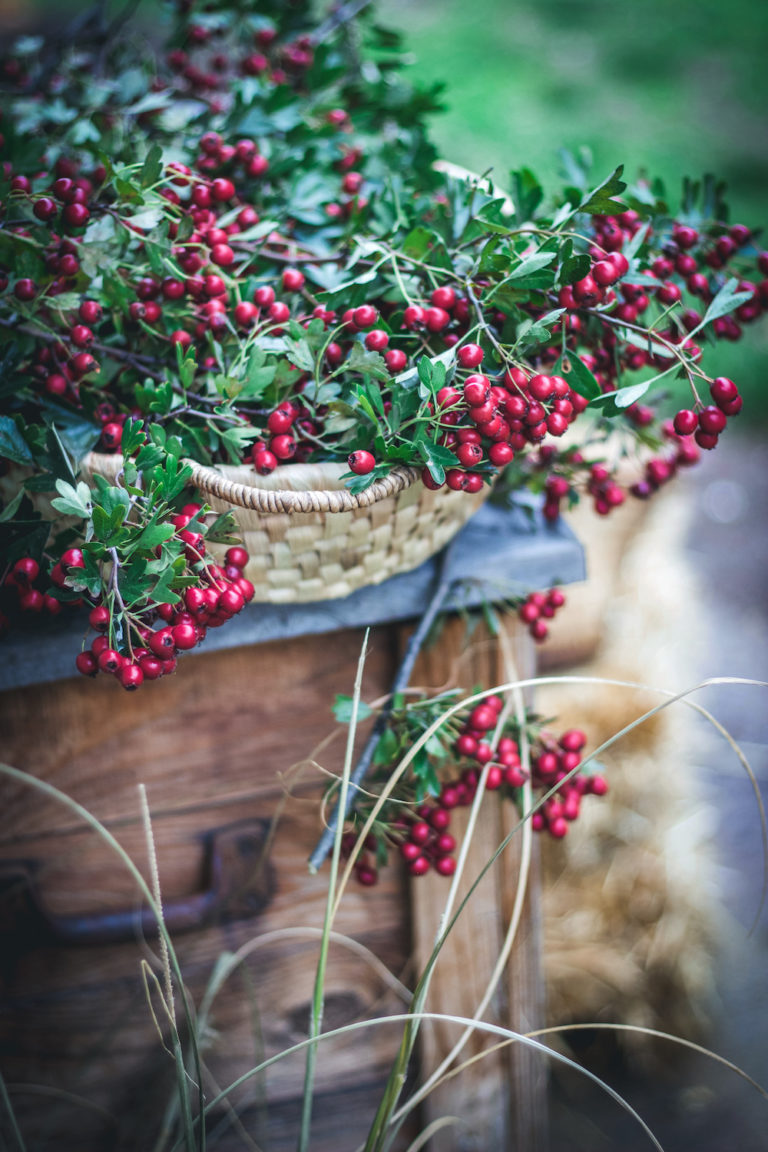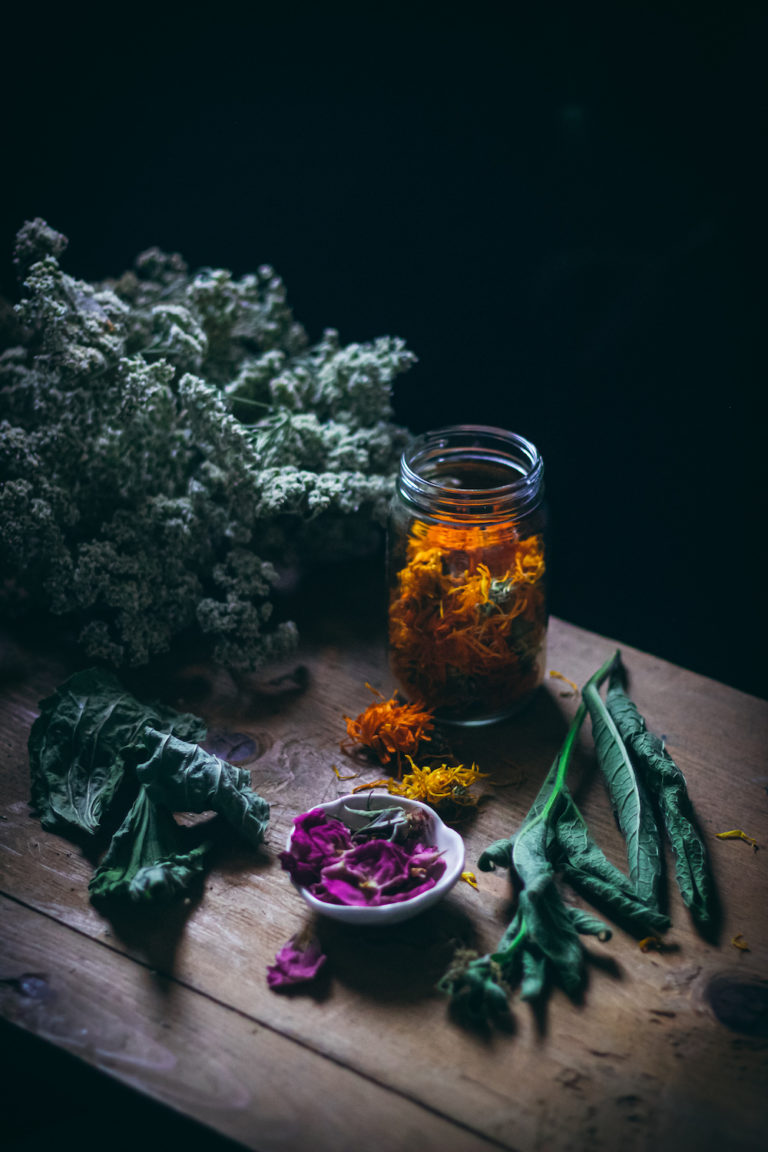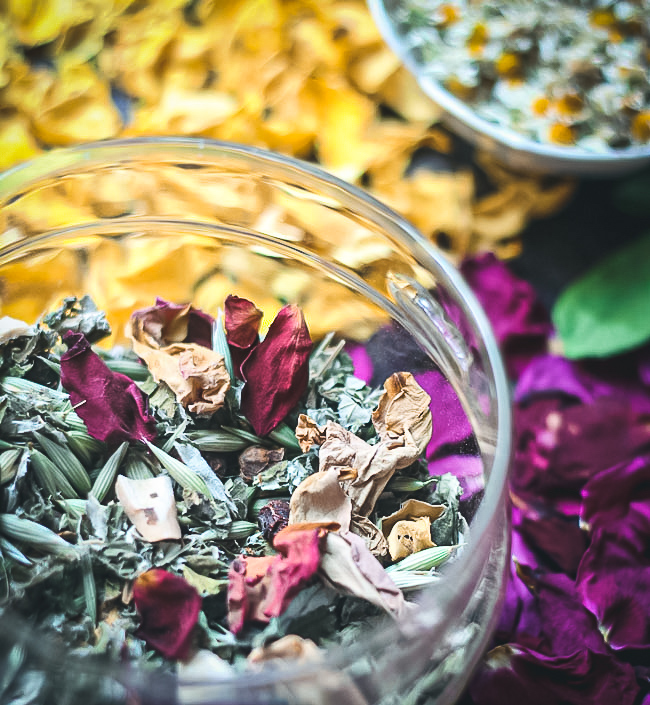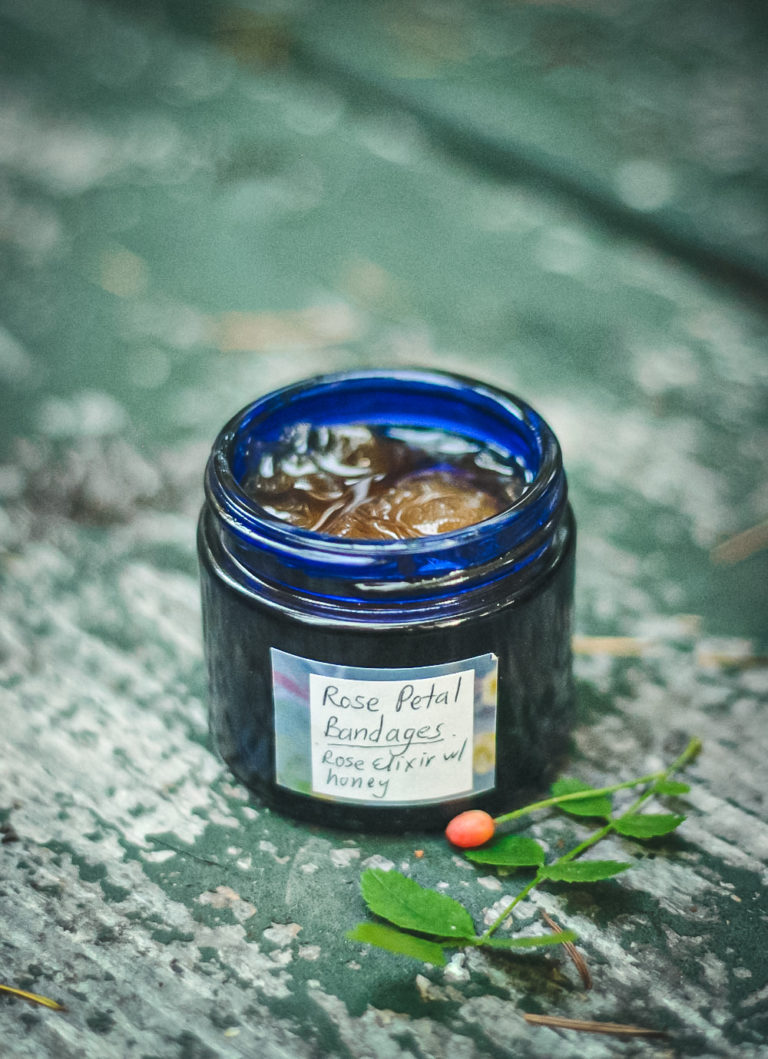Mullein, Cedar and Tangerine Peel: Simple Lung Tonic Tea
Sometimes simple is nice
I would like to share with you a variation of a lung tonic tea with Mullein as the chief herb, but in a slightly different way than the Mullein Lung Tonic tea I shared for wildfire smoke inhalation.
Years ago, I reached for a tea of these three simple herbs after I had had a case of an intense respiratory infection. Maybe it was influenza related?
I’m not quite sure, but it was harsh.
Not as harsh as a Minnesota winter respiratory infection, but bad on Oregonian terms. After the worst of it, I still had a sore, raw feeling in my lungs and ribs, with weakened respiration, and lingering irritated cough. My lungs felt mostly dry, but with occasional stuck phlegm that was hard to move out. It was like the moisture balance of the lungs needed to be re-regulated.
All my acupuncture and shiatsu tricks to treat the Lung channel fell flat. Convalescing didn’t make it go away, either.
I faced the same theme that I did during the wildfire smoke. I really wanted to address the lungs, but the strong anti-infective herbs and formulas were not indicated. The Wild Cherry and Elecampane syrups were not exactly what I was looking for at that moment of the sickness trajectory.
The lungs needed soothing, restoration, calming, support.
They needed someone to show them how to be themselves again.
In short, I was looking for a Lung tonic.
Mullein, Coltsfoot and Marshmallow are Lung tonics. So is Lungwort, which I grow but never use.
Some other more well known lung-type herbs also have Lung tonic qualities like Yerba Santa, Elecampane, Pleurisy Root, and even Wild Cherry. I have used them in the absence of an infection when a specific indication comes out at me. They can be really nice in formulations to help support a certain aspect of lung function, especially when balanced within a formulation.
But in this case, I wanted a simple, gentle tea.
I was also learning towards herbs which are accessible and easy to harvest.
In the end I added Licorice, as I do to pretty much ALL teas I make. But it’s optional.
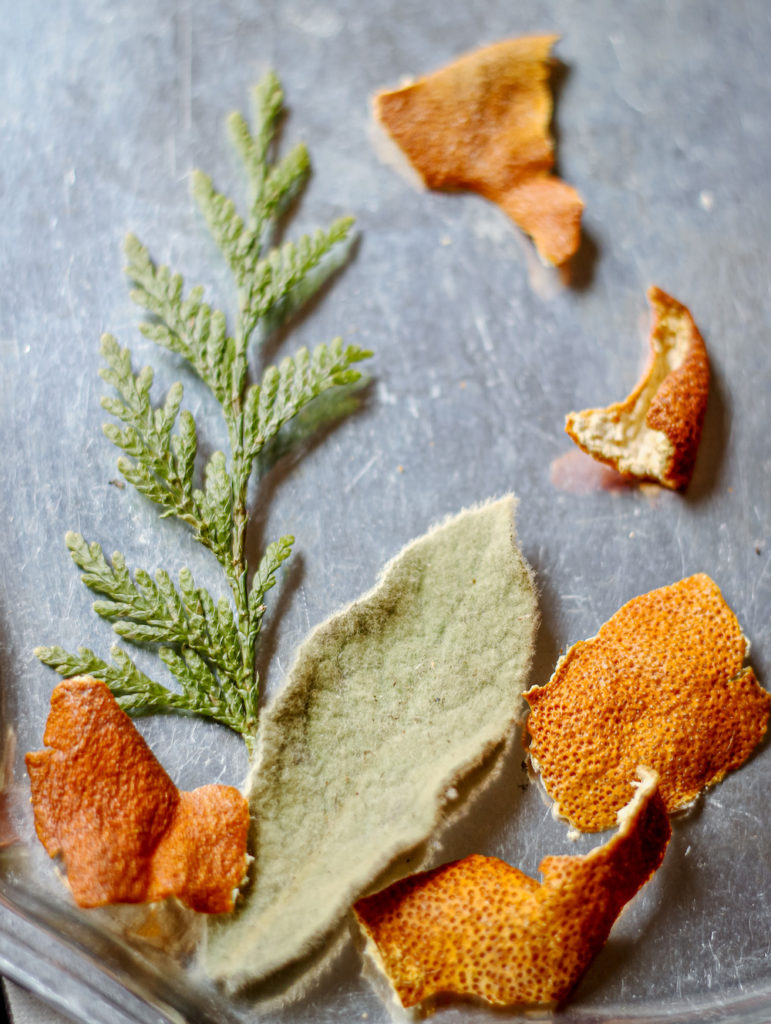
Three Herb Lung Tonic Tea
- Mullein – Verbascum thapsus.
- Red Cedar –Thuja plicata.
- Dried Tangerine Peel – Citrus tangerina.
I don’t often measure my teas, but if I had to guess, I take about 2 tablespoon-fulls of Red Cedar and Tangerine Peel.
By 2 tablespoon-fulls, I mean that I dip the tablespoon in the herb jar and pull out what it can hold, not a level spoonful by any means.
For the Mullein, I broke up 1 smallish-medium leaf or 2 small leaves.
I added these herbs to a pint jar and filled it with boiled water, and let it steep for at least 30 mins.
The thing I love about this tea is that it can be steeped and re-steeped, up to 5 times. I left it sit overnight a couple of times and it was incredibly rich and delicious, and very soothing as the Mullein and Tangerine Peel’s mucilaginous properties were fully extracted.
As mentioned below, please be careful with Red Cedar. Avoid long term use and don’t use if you are pregnant or have kidney issues.
The Herbs
Mullein as a base for a lung tonic tea
Mullein is demulcent lung tonic herb and soothes the mucosa of a dried out, irritated and tickly respiratory system.
The Mullein in these photos came from an empty lot in my neighborhood. Now I have my own house and have Mullein growing everywhere. I like to dry them whole, slitting the biggest leaves down the center vein to help them dry. Before making the tea, I gently crush it to release its aroma. Mullein has a vanilla-like aroma that I never captured until I started drying and storing the leaves whole.
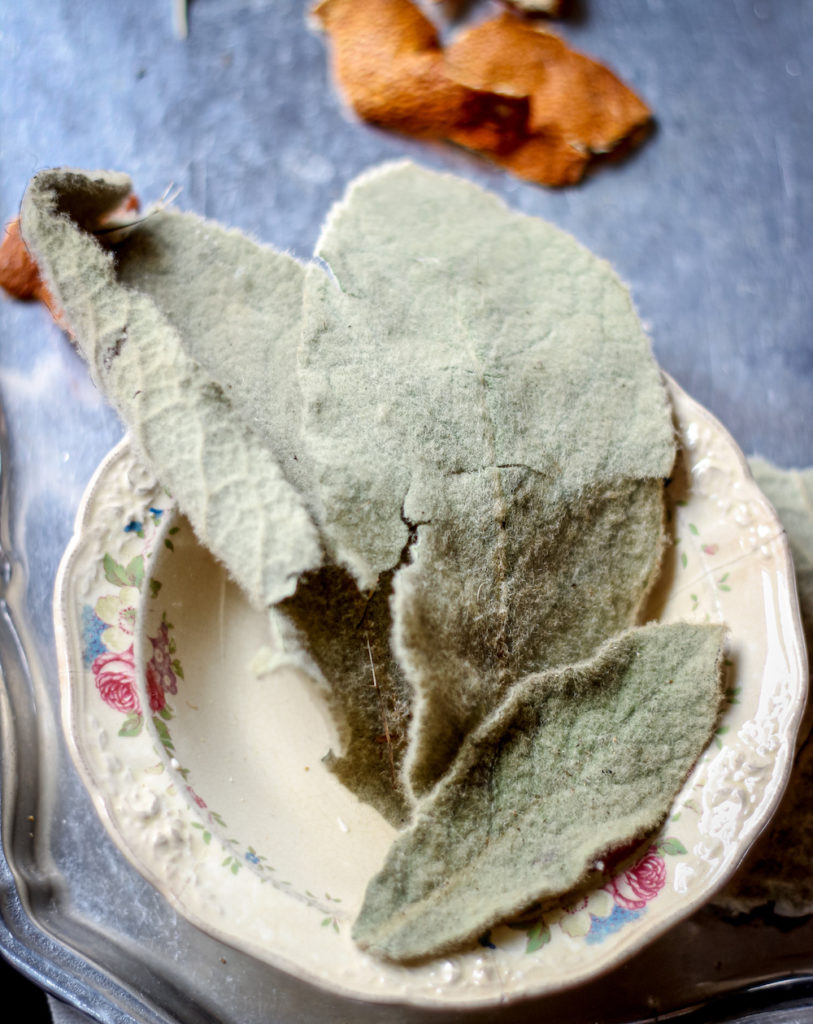
Red Cedar
Red Cedar – another easily harvested herb where I live. Big Cedars grow pretty much everywhere in Portland. After a windy day, I pick up branches from the ground and dry them for tea, baths, steams and hair rinses. I gather them to mulch and create a barrier underneath acid-loving plants like Blueberry and Hydrangea.
Not only is Red Cedar antimicrobial, but as Michael Moore says in Medicinal Plants of the Pacific Northwest,
“Red Cedar is an immunostimulant, increasing phagocytosis (scavenging) by granulocytes (scavenging white blood cells); and small, daily doses (in the absence of kidney disorders or pregnancy) can increase resistance to chronic respiratory and intestinal infections.” (p 211)
The taste and aroma of Cedar is literally like a breath of fresh air. It’s the herbal equivalent to Lung 8 acupuncture point, in my opinion. Another plant that opens my lungs in a similar manner is White Horehound, and I can’t wait to try them together and compare them side by side.
After a few sips of the warm tea, I notice my breath deepening, my shoulders dropping, my chest opening. Cedar is true forest medicine, living and breathing.
Home Dried Citrus Peels
Lastly, I added home-dried Tangerine and Mandarin peels. When they are in season, I buy the small cases of them and save all the peels (warning: house moths LOVE them, so guard them carefully when drying).
They add to the phlegm-resolving qualities of the formula since they are warm, aromatic and moving.
You must make sure that the fruit are organic, because not only do non-organic fruit have herbicides/pesticides/fungicides which concentrate in the peel, they also have a lot of preserving wax on their peels. Occasionally I find that some organic tangerines and mandarins have a preservative wax, too. Although they are considered “food safe”, they don’t make a good cup of tea. So choose your citrus peels carefully if you want to save them yourself.
Tangerine Peel is Chen Pi, a Chinese herb
In Chinese medicine, aged Tangerine peels are called Chen Pi and are a commonly used herb.
Chen Pi is in the Regulate Qi category and is used to help direct dysregulated Qi primarily in the Lungs and secondly, digestion. Chen Pi dries dampness and resolves phlegm.
Chen Pi is warm, sweet, aromatic and bitter. I don’t know how or for how long the Tangerine peels are aged, but I have confirmed that they are quite a bit stronger, more fierce, than my own dried peels. Chen Pi isn’t nearly as orange or soft as my peels. I imagine that their actions, flavors and constituents concentrate and intensify as it ages.
I have a little Tangerine peel aging experiment going on. For the last 7 years, I have filled a paper bag with a handful of freshly aged peels and put it away (well, I’ve missed a few years here and there).
Eventually I will try them all side by side and compare the tastes and actions. Already the batch from 7 years ago is looking less orange and more, well, aged. And they taste much more clear and sharp, with a marked Qi moving effect.
East Asian medicine is its own system, that is for sure. There are some similarities and some differences to Western herbalism.
One thing that stands out in Chinese herbalism the incredible amount of written herbal material reflective of a longstanding theoretical and practical herbal tradition. Chinese herbalism has so much highly developed herbal theory and discussion.
Chen Pi, like any other of the 365 herbs we learned in school, has its own set of indications and limits.
The thing that stands out about Chen Pi is that it should not be used when there is Qi deficiency. If the Lungs are lacking their inherent Qi, using Chen Pi, a Qi mover, will cause further depletion of Qi leading to more weakness and weakness elsewhere.
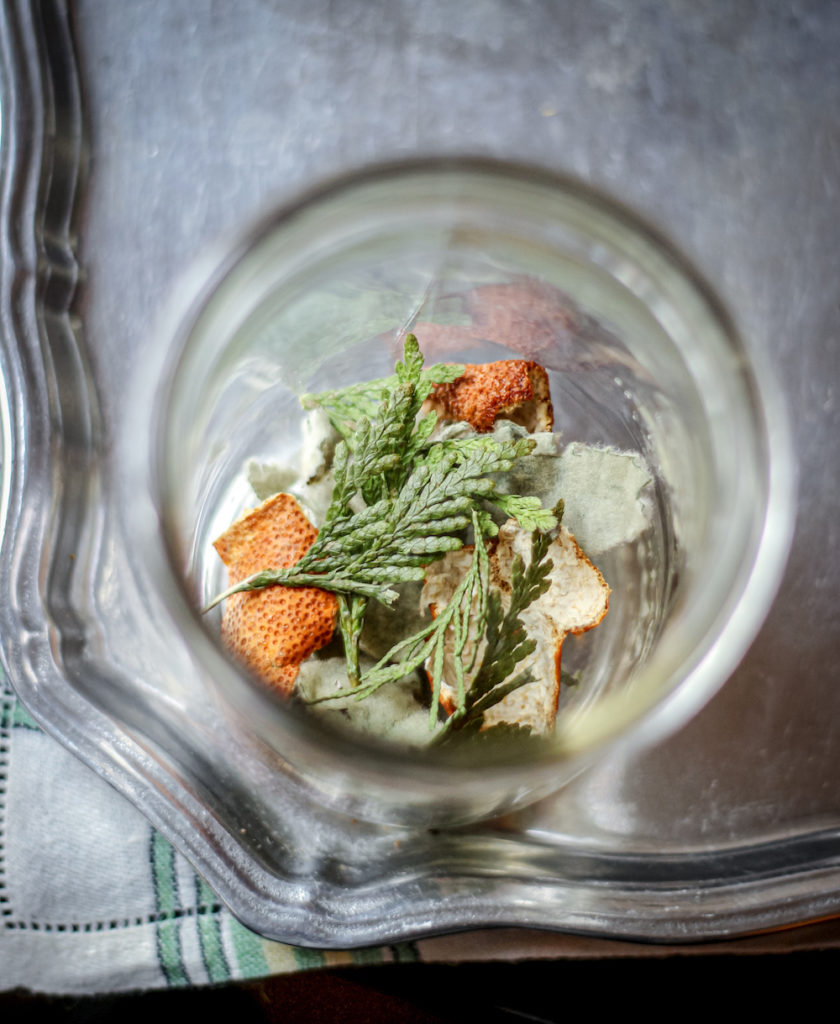
Formulation is everything
Chen Pi in a formula makes all the difference. What I mean is that you don’t really have to worry about it moving too much when they are in a formula.
With Mullein, a lung tonic, and even Licorice / Gan Cao, which is in the Qi Tonifyer category, the potential for Chen Pi to be overly moving and thus Qi depleting is reduced.
Formulation is *such* a powerful balancing tool!
Another way to mitigate the Qi Moving qualities of Chen Pi is to reduce the amount. Just use a little bit – less in weight than Mullein and Cedar.
How would you know if Chen Pi was being too strong of a Qi Mover for you? Basically, you would feel more dried out, overly heated or generally depleted.
Before I learned Chinese herbalism, I used Orange Peel all the time (especially as flavor). I never thought about them being too warm, drying or depleting.
For one, I do think that Chen Pi is much more Qi moving because of how it is processed and aged. Orange Peels and Chen Pi look very different, smell different and taste different. Afterall, they are different species, too.
Another reason Orange Peel never jumped out at me as something I should be mindful of is that I never really used them as a stand alone herb. I did not recognize their own medicinal qualities outside of some general aromatic digestive qualities.
Using Chen Pi as an essentially equal part of a formula brings out their full energetic and medicinal potentials. And with that comes the realization that like all herbs, they have individual energetics. They might not be best for everyone, all the time.
I am ending a post about a “simple lung tonic tea” with speaking about the seemingly simple Citrus Peel in a more nuanced way. I don’t mean to be discouraging . Never have I seen Chen Pi been too much for anyone, mostly because of the art of formulation.
In fact, Chen Pi is added to very tonifiying formulas to reduce the cloying properties of rich and nourishing herbs, particular where Rehmannia, Shu Di Huang, is featured. Chen Pi helps move heavier, denser herbs around to help to support an weakened Middle Jiao (digestive system).
Rather than confuse things, I hope this mini discussion about Chen Pi highlights how we can balance all sorts of energetics and actions within formulation. We as herbalists have tools to adjust a formula if needed.
And I hope this illustrates that Chen Pi is an accessible and worthwhile herb that’s more than just a flavoring agent.
Wishing you all happy lungs, abundant herbs and delicious teas….
Celia
